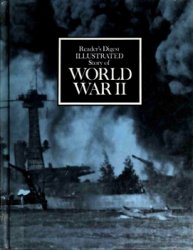The close intersection between rhetorical and literary is most evident in the practice of declamation, a practice central to all rhetorical education from the late republic onward. In declamation it is impossible to draw any firm line between hypothetical rhetorical situations derived from mythological or literary settings, and the apparent ‘‘real life’’ situations for which such a training was intended to equip the orator. Declamation treats both history and mythology (as well, in some cases, as literary themes themselves) as a form of text, to be reworked as the basis for the stylistic and formal improvement of the individual orator. The theories of style and of structure which underpin such developments presuppose a focus not upon the political or legal act, but upon the skills of the orator, who, by virtue of techniques that are largely literary, is transformed into a creature who is most effective if he can transcend his own historical setting; he is equipped for all hypothetical situations, and unconnected with any particular ones. The success of rhetorical theory (and rhetorical handbooks from Rome had an extensive afterlife) is due precisely to the fact that it provides rules which can be applied in any situation. Like Thucydides’ emphasis upon the literariness of history, rhetorical theory depends upon generalizing: about the subjects which will work in particular contexts (topics) as much as the particular techniques of style which will best express them. This is a way of thinking that builds its schemes of classification by extracting generalities from history and committing them to written rules. The performative dynamics of the rhetorical occasion are quickly buried in a form of description which is literary. So to work on rhetoric, to study it, and to find ways of doing it better, is an activity grounded in texts, rather than in performance itself.
Even if we look to the beginnings of rhetorical self-awareness in Rome, with Cicero, it is far from clear that his influential vision of a republic of orator statesmen can be thought of as more than a literary version of Roman history. There is a strong possibility Cicero was projecting his own rather theoretical and literary perspective on rhetoric onto a wider canvas, wanting to vindicate his own career, and to generalize from his own experience onto that of the whole of the governing class at Rome. We need to examine his theories in more detail, and ask whether Cicero’s theoretical work on rhetoric is actually relevant to those without his unusually developed literary interests. In a similar manner, we need to remain aware of the possibility that literary genres, whatever influence rhetorical training may have had on their authors, actually belong to a different category of texts, with little contact to the public arena which was the home of rhetoric. Central to understanding this nexus of ideas is the relationship of rhetorical theory to the work that it purports to describe: the oral performance and the political and legal occasion, supposedly the very substance of Roman history itself.
Cicero represented the pinnacle of rhetorical achievement at Rome, but he was also its pioneer. Because in addition he was also the last great orator of the free republic, he is a pivotal figure for the notion of a change in the place of rhetoric at Rome: under the republic, we have a picture of rhetoric as the discourse of political power, the medium in which the political life of Rome took place, a city in which political decisions depended upon victory in debate or in the court, and where an ability to sway the mob ensured political power. Under the emperors, the picture changes, as the political institutions of the empire become a shadow of their republican forerunners, and where in spite of the rhetorical prowess of senators, political power actually resides elsewhere. This is, in outline, the image of the decline in rhetoric described in the Dialogue de Oratoribus of Tacitus. Rhetoric in this context becomes an accomplishment of the leisured elite, sometimes an act of resistance but more frequently an educational device that allows a sense of a shared cultural heritage to be transmitted, of which the most permanent realization will be a vote of thanks to the emperor rather than a life-or-death struggle for power in the senate house. This literary rhetoric is the kind we find in the younger Pliny, with his self-conscious way of talking about his rhetorical achievements, as opposed to the more dangerous world inhabited by Cicero. Imperial rhetoric is a more literary form, cultivated by those with an interest in reading and pursuing an advanced education: it is in some senses a decline from a form of rhetoric developed with the main aim of acquiring and exercising political power. It is an easy step from such a view ofimperial rhetoric to the notion of a literature (typified by Ovid or Lucan) where figures on the fringes of the political mainstream exercise the same rhetorical skills that they acquired in the schools of declamation in a self-consciously rhetorical form of poetry, and the notion of a rhetorical training influencing literature rests upon such a distinction between the rhetoric of the schoolroom, and the rhetoric of real politics in the republic.
Although such a picture can be supported by historical evidence, it is distorted (see chapters 9 and 24), not so much for its vision of a decline in the association of rhetoric with political power in the empire as for its unrealistic view of the central role of rhetoric in the political processes of the republic. This is why Cicero’s role is so crucial: certainly Cicero presents a very strong case for the notion that rhetoric was the discourse of power in the republic, but much of this case should be regarded as a form of self-justification. Cicero cannot be taken as typical of the governing class of the late republic, and still less should the image that emerges in many of his works, of Rome as a city where political institutions revolve around rhetorical skill, be taken at face value. Fortunately, the survival of so much of Cicero’s work makes it possible to argue a strong case. In works such as De Oratore and Brutus, Cicero confronts directly the conflict between an idealized view of Rome, where rhetoric and political power are inseparable, and a more realistic analysis, where rhetoric is shown to have played only a marginal role in the history of Rome. This conflict mirrors Cicero’s own position, as the exceptionally brilliant child of an obscure, if respectable family, whose career, like that of his less successful brother, was founded upon an unusually thorough education and remarkable rhetorical skill. Oratory certainly enabled Cicero to achieve public prominence through his success as a defense lawyer, and in that sense, can be reasonably thought of as the force that broke through traditional republican power structures to act as a form of social opportunity; but even in Brutus, his chronicle of the rhetorical achievements of Rome’s statesmen through the ages, we find that rhetoric is an accomplishment that statesmen either possess, or more often, do not possess. Their power seldom derives, as Cicero felt that his own did, from rhetorical skill.
So although there are places where Cicero seems to idealize his own society as one where rhetoric was the key to political power, there are also other places where this can be seen to be something of a nostalgic fantasy. The image of the late republic as a hotbed of rhetorical self-awareness and skill may have some historical truth to it. But at the hands of Cicero, it becomes much more clearly a literary fantasy, one that is then happily indulged in during the more nostalgic moments of later theoretical writings. We cannot judge, of course, how far Cicero is exaggerating the importance of rhetorical skill in late republican politics. Julius Caesar’s highly developed interest in language is interesting, but not wholly relevant evidence. But what is clear is that when Cicero represents rhetoric as synonymous with the practice of Roman statecraft, he does so in highly artificial historical fictions (in De Oratore), or in ironic historical genealogy (in Brutus). Cicero may have wished that rhetorical skill were the key to power at Rome, but he also knows clearly that it is not the case. These beginnings of rhetorical theory in Latin demonstrate the difficulty of looking beyond literature for a trace of a fundamentally oral or performative form of rhetoric. The story that we tell about rhetoric in order to assess its place in the world is bound to give it a literary quality.




 World History
World History









